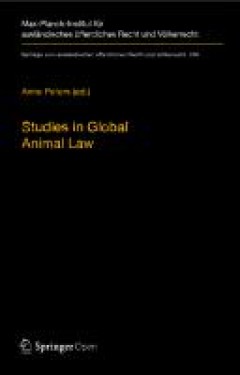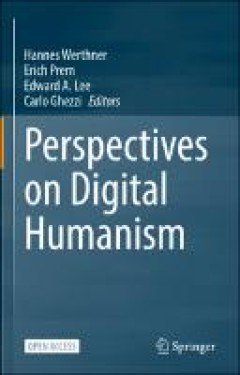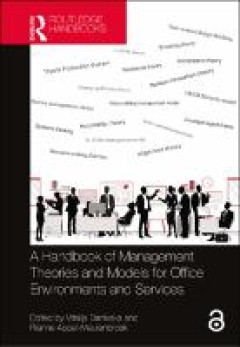Filter by

Anthropology's world : life in a twenty-first century discipline
A work that reassesses the issues that have always affected anthropology: what is anthropology for; how do anthropologists want their work to be understood; for whom do they write, and in what language? In his panoramic new book, Ulf Hannerz cements his reputation as one of anthropology's finest writers. He describes how anthropology came to be a major intellectual discipline, why it is vital t…
- Edition
- -
- ISBN/ISSN
- 9781849645652
- Collation
- vii, 199 p.
- Series Title
- -
- Call Number
- 301 HAN a

Personalised cancer medicine : future crafting in the genomic era
What does it mean to personalise cancer medicine? Personalised cancer medicine explores this question by foregrounding the experiences of patients, carers and practitioners in the UK. Drawing on an ethnographic study of cancer research and care, we trace patients’, carers’ and practitioners’ efforts to access and interpret novel genomic tests, information and treatments as they craft pers…
- Edition
- -
- ISBN/ISSN
- 9781526156532
- Collation
- viii, 277 p.
- Series Title
- -
- Call Number
- 616.9940695 KER p

Studies in global animal law
This open access book contains 13 contributions on global animal law, preceded by an introduction which explains key concepts and methods. Global Animal Law refers to the sum of legal rules and principles (both state-made and non-state-made) governing the interaction between humans and other animals, on a domestic, local, regional, and international level. Global animal law is the response to t…
- Edition
- -
- ISBN/ISSN
- 9783662607565
- Collation
- viii, 183 p.
- Series Title
- Beiträge zum ausländischen öffentlichen Recht und Völkerrecht 290
- Call Number
- 346.046954 PET s
Adult language education and migration : challenging agendas in policy and pr…
Adult Language Education and Migration: Challenging Agendas in Policy and Practice provides a lively and critical examination of policy and practice in language education for adult migrants around the world, showing how opportunities for learning the language of a new country both shape and are shaped by policy moves. Language policies for migrants are often controversial and hotly contested, b…
- Edition
- -
- ISBN/ISSN
- 9781315718361
- Collation
- xvii, 225 p.
- Series Title
- -
- Call Number
- 306.449 SIM a

Industrial agriculture and ape conservation
Social and economic systems worldwide are changing rapidly. These changes are accompanied by an increasing demand for natural resources, including land, water, minerals, energy sources, food and timber. Today's foremost challenge lies in finding the tools to address the complexity of these interrelated trends, and in implementing strategies to balance environmental and socioeconomic needs. This…
- Edition
- -
- ISBN/ISSN
- 9781316505236
- Collation
- xxvi, 360 p. ; ill
- Series Title
- -
- Call Number
- 599.88 RAI i

Perspectives on digital humanism
This open access book aims to set an agenda for research and action in the field of Digital Humanism through short essays written by selected thinkers from a variety of disciplines, including computer science, philosophy, education, law, economics, history, anthropology, political science, and sociology. This initiative emerged from the Vienna Manifesto on Digital Humanism and the associated le…
- Edition
- -
- ISBN/ISSN
- 9783030861445
- Collation
- xviii, 342 p. : ill.
- Series Title
- -
- Call Number
- 004 WER p

A handbook of management theories and models for office environments and serv…
Although workplace design and management are gaining more and more attention from modern organizations, workplace research is still very fragmented and spread across multiple disciplines in academia. There are several books on the market related to workplaces, facility management (FM), and corporate real estate management (CREM) disciplines, but few open up a theoretical and practical discussio…
- Edition
- -
- ISBN/ISSN
- 9781003128786
- Collation
- xv, 253p.
- Series Title
- -
- Call Number
- 658.312 DAN a

Big and little histories : sizing up ethics in historiography
This book introduces students to ethics in historiography through an exploration of how historians in different times and places have explained how history ought to be written and how those views relate to different understandings of ethics. No two histories are the same. The book argues that this is a good thing because the differences between histories are largely a matter of ethics. Looking …
- Edition
- -
- ISBN/ISSN
- 9780429399992
- Collation
- XI, 209 p.
- Series Title
- -
- Call Number
- 174.99072 HUG b

Families and food in hard times : European comparative research
Food is fundamental to health and social participation, yet food poverty has increased in the global North. Adopting a realist ontology and taking a comparative case approach, Families and Food in Hard Times addresses the global problem of economic retrenchment and how those most affected are those with the least resources. Based on research carried out with low-income families with children ag…
- Edition
- -
- ISBN/ISSN
- 9781787356559
- Collation
- xiii, 274 p. : ill
- Series Title
- -
- Call Number
- 362.5094 OCO f

Learning cultural literacy through creative practices in schools : cultural a…
This open access book discusses how cultural literacy can be taught and learned through creative practices. It approaches cultural literacy as a dialogic social process based on learning and gaining knowledge through emphatic, tolerant, and inclusive interaction. The book focuses on meaning-making in children and young people’s visual and multimodal artefacts created by students aged 5–15 a…
- Edition
- -
- ISBN/ISSN
- 9783030892364
- Collation
- xxi, 151 p. : ill.
- Series Title
- -
- Call Number
- 306.071 LAH l
 Computer Science, Information & General Works
Computer Science, Information & General Works  Philosophy & Psychology
Philosophy & Psychology  Religion
Religion  Social Sciences
Social Sciences  Language
Language  Pure Science
Pure Science  Applied Sciences
Applied Sciences  Art & Recreation
Art & Recreation  Literature
Literature  History & Geography
History & Geography